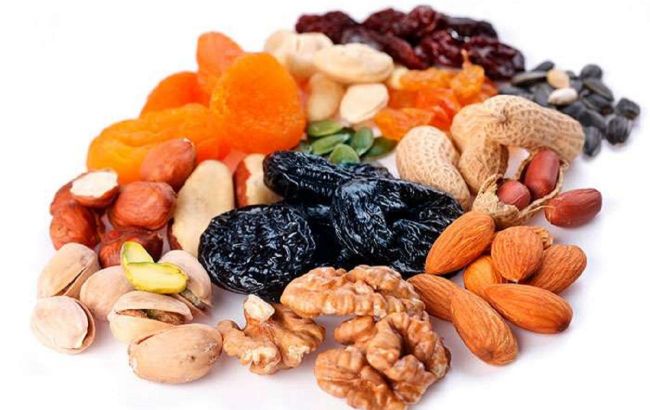Not only salt: What is essential for normal blood pressure
 What to include in the diet of patients with hypertension (photo: pixabay)
What to include in the diet of patients with hypertension (photo: pixabay)
Hypertension is a leading cause of many life-threatening conditions, including coronary artery disease, stroke, chronic kidney disease, heart failure, and even some forms of dementia. What should be limited and what should be included in the diet of people with hypertension is explained by Ukrainian dietitian Oleh Shvets.
Controlling high blood pressure has remained a relevant and unresolved issue for doctors of various specialties for decades. Traditionally, one of the main enemies of normal blood pressure is considered to be excess sodium in the diet (table salt). It is known to raise blood pressure. At the same time, a diet high in potassium has the opposite, beneficial effect.
What should people with hypertension eat?
But which is more important? Reducing sodium or increasing potassium? To better understand these complex relationships, researchers from the University of Waterloo (Canada) conducted detailed computer modeling of fluid and electrolyte regulation processes in the body, as well as the impact of sodium and potassium intake on blood pressure. The results of their work, published in March 2025 in the authoritative journal American Journal of Physiology-Renal Physiology, turned out to be quite unexpected.
According to the study’s conclusions, although the advice to eat less salt with high blood pressure is correct, adding potassium-rich foods like bananas or broccoli to the diet may have a greater positive effect on blood pressure than simply mechanically reducing sodium intake. This suggests that not only the absolute amount of sodium or potassium, but also their ratio in the diet, plays a key role.
The scientists explain this from an evolutionary point of view. The diet of early humans consisted mainly of fruits and vegetables, which contain a lot of potassium and little sodium. The regulatory systems of our body likely evolved to function optimally under such conditions. The modern diet, on the contrary, is often oversaturated with sodium (processed foods, fast food) and poor in potassium, which may be one of the reasons for the widespread occurrence of hypertension.
The modeling also revealed some differences depending on sex. Although hypertension often develops faster in men than in women (before menopause), it is men, according to the study, who may respond more positively to an increased potassium-to-sodium ratio in the diet.
What does this mean in practice?
The new study emphasizes that for effective blood pressure control, it is not enough to only limit salt. Equally important, if not more so, is adding potassium-rich foods to your diet: fruits, vegetables, legumes. These may include bananas, broccoli, spinach, sweet potatoes, beans, lentils, and others. Of course, any dietary changes, especially with existing hypertension, should be discussed with your doctor, who can provide individual recommendations.
The scientists’ conclusion is simple but very important: pay attention not only to how much salt you consume, but also to how much potassium your body receives. This may be the key to normalizing blood pressure and significantly improving your health.
You may be interested in:
- A diet that reduces the risk of stroke and heart attack by 14%
- A new scientific discovery about obesity and food changes everything
This material is for informational purposes only and should not be used for medical diagnosis or self-treatment. Our goal is to provide readers with accurate information about symptoms, causes, and methods of detecting diseases. RBС-Ukraine is not responsible for any diagnoses that readers may make based on materials from the resource. We do not recommend self-treatment and advise consulting a doctor in case of any health concerns.

